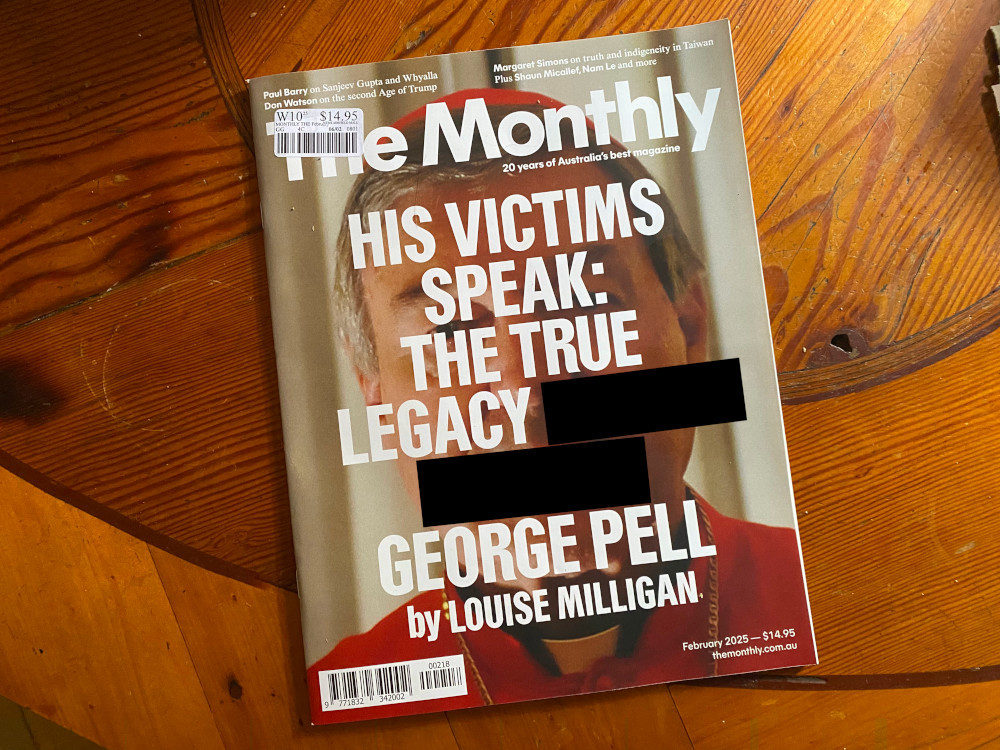You are not meant to be able to buy the February edition of The Monthly with a headline about George Pell. The mag is meant to have been removed from news agencies along with an article on the ABC website. But while the ABC article is gone, the very first newsagent I tried had the mag on sale. You might be able to find a copy.
The headline would have been the subject of a libel action while Cardinal George Pell was alive, but the dead can’t sue.
The essay in The Monthly by ABC investigative journalist Louise Milligan divulges the results of National Redress Scheme cases, the mechanism which aims to hold institutions accountable for institutional child abuse. It reveals that compensation was paid.
As reported by The Australian, letters about the disclosures were sent by the Department of Social security which administers the Redress Scheme. The Act setting up the Redress Scheme has strict rules and penalties restricting the disclosure of protected information. At this stage no further action is being taken by the government according to the Australian.
The nature of the cases which were also featured in Milligan’s book Cardinal can’t be reported here.
The Monthly’s website currently notes:”The Monthly has chosen to temporarily remove Louise Milligan’s recent essay from our website. We have been made aware of an active case that is about to come before the courts that had not been previously in the public domain. In the interests of protecting the integrity of that case, we have taken down the story.”
The National Redress Scheme for Institutional Child Sexual Abuse Act 2018 says a victim is eligable for redress if there is a “reasonable likelihood,” of the abuse having occured. This “reasonable likelihood” is defined as “the chance of the person being eligible is real, is not fanciful or remote and is more than merely plausible.”
It is not made clear in Milligan’s essay that the grounds for eligibility for redress are less than the civil case criterion of “balance of probability” or the criminal court cases standard of “beyond reasoanble doubt”.
I sat in the High Court for two days as the final appeal in Pell’s criminal case was decided. the improbabilities mounted as the High Court justices probed the evidence that the prosecution had offered. To me, but more importantly to the seven high court justices it was clear a guilty verdict could not be sustained.
As far as The Other Cheek can tell neither The Monthly nor the ABC have reported in detail the problems with the prosecution evidence in the Pell case overturned in the High Court..
On the other hand there is a free speech issue regarding the stories Milligan tells of people convinced that Pell abused them. But it should be clear that they have yet not passed the test a court would apply – and indeed the Victorian prosecutors declined to bring at least some of the cases Milligan details to court. In a strongly argued part of her Monthy essay Milligan details the way the Catholic church has used legal maneuvers – for example relying on the fact that priests are not technically employees – to avoid paying compensation. She points out this tactic is still being employed by religious orders.
Onc civil case is live from a relative of an alleged victim and it we need to patiently wait to see how that is determined.

